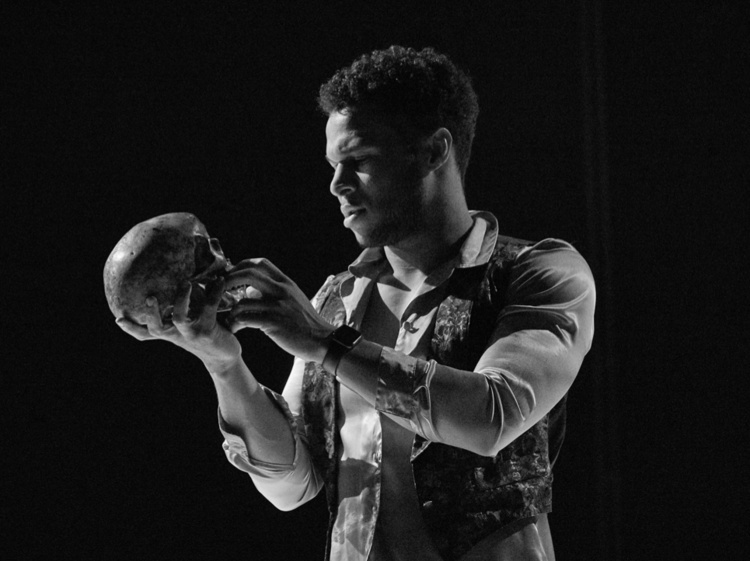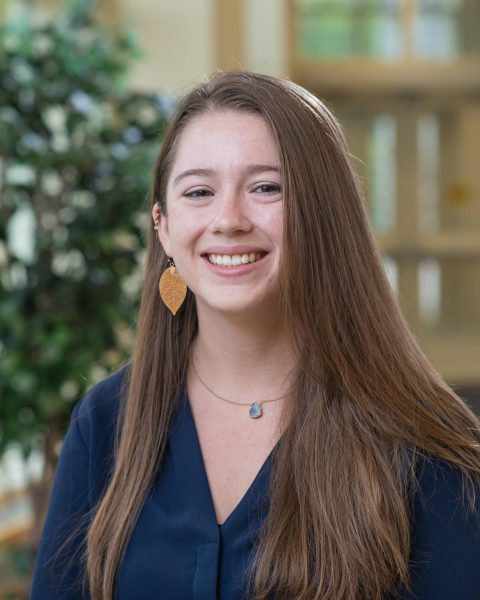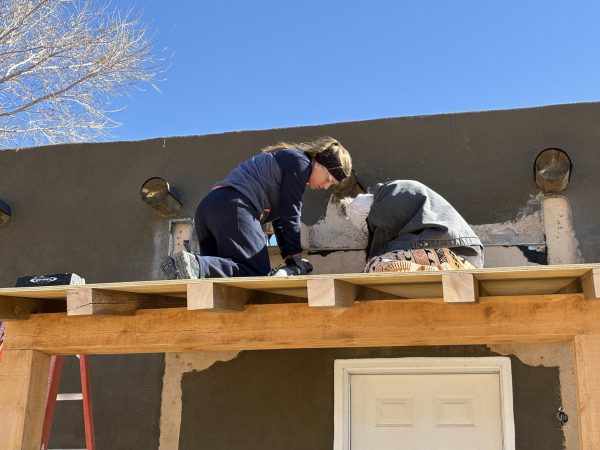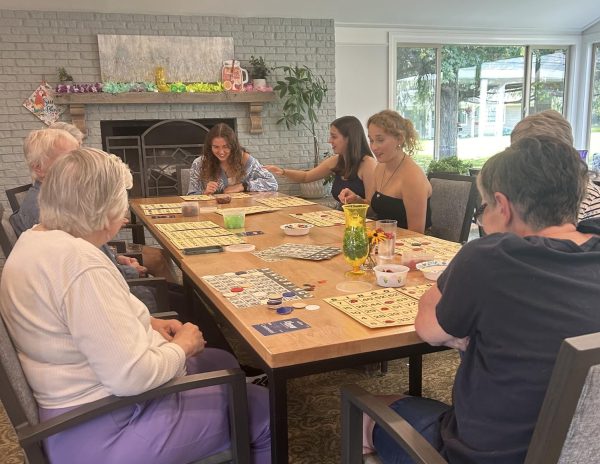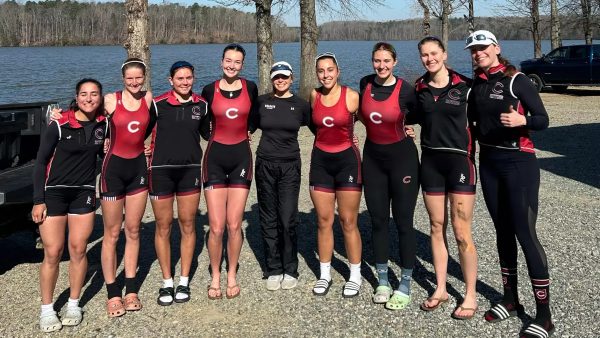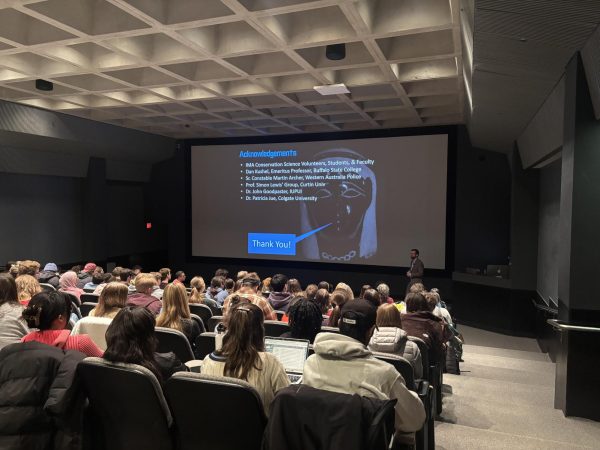To Be or Not to Be on Stage: Colgate’s Theater Department Encourages us to Find Our Inner Hamlet
“Why Hamlet? Why Today? Because Hamlet is always a mirror of its time… Hamlet is inevitable. You cannot think of theater without thinking about Hamlet. Hamlet is something to be confronted. Hamlet is us,” said Professor of Theater Adrian Giurgea.
Giurgea is the director of Colgate’s Spring play, “Hamlet the Sponger”, to be premiered virtually on April 24. Having worked at Colgate for 16 years, Giurgea has directed around 10 productions for the theater program. Directing during a pandemic, however, is new territory for him.
“I am on new and perilous ground. I’ve never done this before. I’m terrified out of my mind,” Giurgea said about the process. He is working remotely this semester, as well as many other members of the crew.
“This is mind-boggling to me. [There is] one videographer in Vancouver, the other in Chicago, the costume designer works from NYC, a musician in Estonia, actors in Germany, China, Russia, New Jersey and Boston. One of the stage managers is in Texas,” Giurgea said.
With crew members all over the world and the inability to physically occupy a theater together on campus, the actors will submit videos of themselves performing their monologues in their own living spaces. With help from film and media studies concentrators, these clips will be edited together to create the full show.
“Making something coherent is an extraordinary challenge. Challenge is actually good, challenge makes us grow… So, we do our best with what we have. I hope the results are interesting and different,” he added.
Sophomore Jenny Wu, one of the actors in the play who is studying remotely from Shanghai this semester, spoke to this challenge as well.
“Sadly, theater is no longer theater under the influence of COVID-19. But we are doing our best to make a production of “Hamlet” that is unique to this special time,” Wu said.
Junior Sarah Billings, another actor in the play, echoed these mixed feelings.
“For what we are able to do, it has been a really meaningful experience because we have worked mainly one-on-one over Zoom, which has allowed us more personal time working with our director,” she said. “At the same time, not being able to be in the theater due to COVID-19 has made it really challenging because we’re constantly having to do rehearsals in our living spaces and change the way we act from on a stage to more up-close on a computer screen. It’s much harder to commit to your emotions when you might have roommates talking next door or technical problems halfway through.”
Despite difficulties brought on by the pandemic, however, Giurgea, Wu and Billings share excitement for Colgate’s personal twist on the Shakespeare classic.
“It has been interesting because we’re not doing the typical “Hamlet” — it has been a lot more of an exploratory process, which has made it super unique and enjoyable beyond the enjoyment of the play itself,” Billings said.
Giurgea spoke to the unique nature of the production and why there will be not one, but seven different Hamlets in the show.
“There is not any actor, male or female, that has not dreamt of playing Hamlet. There are almost 300 Hamlets played by women. Three last year were played by Black women. Hamlet takes on the shape of who we are, what we need and who we aspire to be,” Giurgea reflected.
Wu and Billings each play one of the seven Hamlets featured in the play.
“I do the monologue ‘to be or not to be.’ Since I’m not sure whether I should spoil the production, I will just say that I am asked to do the monologue in a really unusual environment while being asked to be the truest form of myself,” Wu said of her role.
Giurgea added that the unconventionality of the production offers both actors and spectators a valuable learning experience.
“One of the challenges we have at Colgate is to place the students in an environment in which they are immersed in something not comfortable for them. How will they respond to a Hamlet that is different? How will they respond to being witnesses to something that defies their expectations?” Giurgea said. “Theater should be uncomfortable, it should make you think. We want our students to feel free to be themselves and confront their own lives.”
This goal seems to have been met, as Wu has learned a lot about herself from the experience thus far.
“I believe that there is a Hamlet within every single existing individual on Earth, and we only need to discover the madness within ourselves and embrace the Hamlet within us. This is probably the most thrilling and awesome part of this tragedy,” she said. “I’m just really excited to uncover the Hamlet within me and hear what he has to say!”


